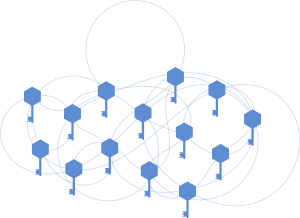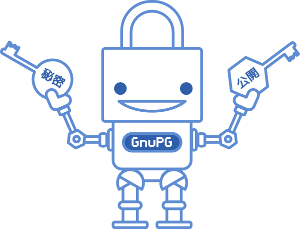Free Software Supporter Issue 75, June 2014 Welcome to the Free Software Supporter, the Free Software Foundation's monthly news digest and action update -- being read by you and 80,361 other activists. That's 807 more than last month! View this issue online here: https://fsf.org/free-software-supporter/2014/june Encourage your friends to subscribe and help us build an audience by adding our subscriber widget to your web site. Miss an issue? You can catch up on back issues at https://www.fsf.org/free-software-supporter. # El Free Software Supporter está disponible en español. Para ver la versión en español haz click aqui: https://fsf.org/free-software-supporter/2014/junio Para cambiar las preferencias de usuario y recibir los próximos números del Supporter en castellano, haz click aquí: https://crm.fsf.org/civicrm/profile/create?gid=34&reset=1 Le Free Software Supporter est disponible en français. Pour voir la version française cliquez ici: https://fsf.org/free-software-supporter/2014/juin Pour modifier vos préférences et recevoir les prochaines publications du Supporter en français, cliquez ici: https://crm.fsf.org/civicrm/profile/create?gid=34&reset=1 TABLE OF CONTENTS - Reset the Net with our Email Self-Defense Guide
- Join the FSF and allies: strengthen the Tor anti-surveillance network
- US Supreme Court makes the right decision to nix Alice Corp. patent, but more work needed to end software patents for good
- Recap of Friday Free Software Directory IRC meetup: June 6
- "Active Management Technology": The obscure remote control in some Intel hardware
- Replicant at the 15th Libre Software Meeting in Montpellier, France this July
- US Supreme Court reining in software patents
- GCC 4.7.4 released
- LibrePlanet featured resource: IBM Thinkpad X60
- GNU Spotlight with Karl Berry: 23 new GNU releases!
- GNU Toolchain Update
- Richard Stallman's speaking schedule and other FSF events
- Thank GNUs!
- GNU copyright contributions
- Take action with the FSF!
Reset the Net with our Email Self-Defense Guide From June 5th This month we joined the Reset the Net day of action by releasing Email Self-Defense, a guide to personal email encryption to help everyone, including beginners, make the NSA's job a little harder. The Email Self-Defense Guide will lead you all the way through the process of sending and receiving your first encrypted mail. We're excited to announce that volunteers are currently working on translations of the guide and infographic into ten languages. Translations in German, Brazilian Portuguese, French, Russian, Turkish, and Japanese have been published, with more languages coming soon. Blog posts: Press release: Guide: Join the FSF and allies: strengthen the Tor anti-surveillance network From June 5th We're joining our allies at the Electronic Frontier Foundation (EFF) in kicking off the Tor Challenge, an effort to strengthen the global Tor network that protects Internet traffic from surveillance. Start a relay and register it with the Tor Challenge! It's easy and works on all operating systems, including the best one — GNU/Linux. US Supreme Court makes the right decision to nix Alice Corp. patent, but more work needed to end software patents for good From June 19th On June 19, the United States Supreme Court unanimously ruled a prominent software patent invalid in the case of Alice Corp. v. CLS Bank, saying that implementing an abstract idea on a computer does not make that idea patent-eligible. This ruling is an important and meaningful step in the right direction, but the Court and Congress must go further. Introducing Alex Patel, our summer campaigns intern From June 30th Alex Patel will be working as an intern with the campaigns team at the Free Software Foundation this summer. In this post, he writes about what brought him to free software, and the goals for his internship. Recap of Friday Free Software Directory IRC meetup: June 6 From June 6th Updates from the Free Software Directory community from the week of June 6, 2014. "Active Management Technology": The obscure remote control in some Intel hardware By Ward Vandewege, Matthew Garrett, and Richard M. Stallman, from June 19th Intel's Active Management Technology (AMT) is a proprietary remote management and control system for personal computers with Intel CPUs. It is dangerous because it has full access to personal computer hardware at a very low level, and its code is secret and proprietary. Replicant at the 15th Libre Software Meeting in Montpellier, France this July By Paul Kocialkowski, from June 19th Replicant will be in attendance at the 15th edition of the Libre Software Meeting (Rencontres Mondiales du Logiciel Libre) from July 5 to 11, 2014 in Montpellier, France. Replicant will present the project through a few talks as well as a workshop. In addition, Replicant developer Paul Kocialkowski will present about various freedom issues on ARM devices: ARM devices and your freedom. US Supreme Court reining in software patents By Ciarán O'Riordan, from June 20th "Reining in." It wasn't easy to find a term that was both accurate and also vague enough to describe what just happened. The US Supreme Court today published its decision on Alice v. CLS Bank. It's too early to say exactly what the effects will be, but the news is certainly all good: The Court in no way extended patentability nor did it affirm patentability for any sub-category of software; and a certain category of software patents has definitely been invalidated. Blog post: Wiki page: GCC 4.7.4 released By GCC, June 12th The GNU project and the GCC developers are pleased to announce the release of GCC 4.7.4. This release is a bug-fix release, containing fixes for regressions in GCC 4.7.3 relative to previous releases of GCC. Join the FSF and friends in updating the Free Software Directory Tens of thousands of people visit directory.fsf.org each month to discover free software. Each entry in the Directory contains a wealth of useful information, from basic category and descriptions to version control, IRC channels, documentation, and licensing. The Free Software Directory has been a great resource to software users over the past decade, but it needs your help staying up-to-date with new and exciting free software projects. To help, join our weekly IRC meetings on Fridays. Meetings take place in the #fsf channel on irc.gnu.org, and usually include a handful of regulars as well as newcomers. Everyone's welcome. The next meeting is Friday, July 11 from 2pm to 5pm EDT (18:00 to 21:00 UTC). Details here: LibrePlanet featured resource: IBM Thinkpad X60 Every month on LibrePlanet, we highlight one resource that is interesting and useful -- often one that could use your help. For this month, we are highlighting the IBM Thinkpad X60, which provides information about making the IBM Thinkpad free software friendly. You are invited to adopt, spread and improve this important resource. Do you have a suggestion for next month's featured resource? Let us know at campaigns@fsf.org. GNU Spotlight with Karl Berry: 23 new GNU releases! 23 new GNU releases in the last month (as of June 28, 2014): To get announcements of most new GNU releases, subscribe to the info-gnu mailing list: https://lists.gnu.org/mailman/listinfo/info-gnu. Nearly all GNU software is available from https://ftp.gnu.org/gnu/, or preferably one of its mirrors (https://www.gnu.org/prep/ftp.html). You can use the url http://ftpmirror.gnu.org/ to be automatically redirected to a (hopefully) nearby and up-to-date mirror. This month, we welcome Bernd Paysan as the new maintainer (though the long-time author and developer) of gforth and vmgen, and Ruben Rodriguez (long-time developer of Trisquel) as the new maintainer of IceCat. Thanks to all. Also, please consider attending the GNU Hackers' Meeting https://www.gnu.org/ghm/ in Munich this year, August 15-17; attendance is free of charge, but pre-registration is essential. A number of GNU packages, as well as the GNU operating system as a whole, are looking for maintainers and other assistance: please see https://www.gnu.org/server/takeaction.html#unmaint if you'd like to help. The general page on how to help GNU is at https://www.gnu.org/help/help.html. To submit new packages to the GNU operating system, see https://www.gnu.org/help/evaluation.html. As always, please feel free to write to me, karl@gnu.org, with any GNUish questions or suggestions for future installments. GNU Toolchain update From June 22th The GNU toolchain refers to the part of the GNU system which is used for building programs. These components of GNU are together often on other systems and for compiling programs for other platforms. This month features improvements to GDB, G++, and GCC. Richard Stallman's speaking schedule For event details, as well as to sign-up to be notified for future events in your area, please visit https://www.fsf.org/events. So far, Richard Stallman has the following events in July: - Jul 4, 2014, 10:00am to 10:00am, Brighton, United Kingdom, "Richard Stallman at IndieTech, in Brighton, United Kingdom"
- Jul 5, 2014, 11:15am to 12:00pm, Paris, France, "Richard Stallman to speak at Tails Hackfest, in Paris, France""
- Jul 6, 2014, 4:00pm to 6:00pm, Montpellier, France, "Le logiciel libre et ta liberté"
- Jul 8, 2014, 2:30pm to 4:30pm, Montpellier, France, "Une société digitale libre"
Other events On the weekend of August 15 to 17, 2014, people responsible for the GNU operating system will gather in Munich, Germany at the eighth GNU Hackers' Meeting https://www.gnu.org/ghm/. The meeting is open to developers, users and all people interested in GNU. It is an opportunity to share ideas and for social interaction within the GNU community. Attendance is gratis, but prior registration is necessary. More details here: http://www.gnu.org/ghm/upcoming.html. Thank GNUs! We appreciate everyone who donates to the Free Software Foundation, but we'd like to give special recognition to the folks who have donated $500 or more in the last month. This month, a big Thank GNU to: - George Tsiagalakis
- Dominik Kellner
- Justin Baugh
- Mirko Luedde
- Marilee Griswold
- Laurentiu Mihai Popescu
- Aycan Özcan
- Allan Fields
You can add your name to this list by donating at https://donate.fsf.org. GNU copyright contributions Assigning your copyright to the Free Software Foundation helps us defend the GPL and keep software free. The following individuals, and eleven others, have assigned their copyright to the FSF in the past month: - Abhishek Bhowmick (GNU Radio)
- Dr. Philipp Tomsich (GNU Binutils)
- Santiago Paya Miralta (GNU Emacs)
- Jose A. Ortega Ruiz (GNU EMMS and GNU Emacs)
- Kelvin Duane White (GNU Emacs)
- Kevin Cox (glibc)
- Artyom Poptsov (GNU Guile-RPC)
- Sylvestre Ledru (GCC)
- Zhuo Qingliang (GNU Emacs)
- Nick Salerni (GNU Emacs)
- Braden Obrzut (GCC)
- Zihang Chen (GNU Wget)
- Thomas Morgan (GNU Emacs)
- Dieter Schoen (GNU Emacs)
- Alex Kost (GNU Emacs)
Want to see your name on this list? Contribute to GNU and assign your copyright to the FSF. https://www.gnu.org/server/takeaction.html#dev Take action with the FSF Contributions from thousands of individual members enable the FSF's work. You can contribute by joining at https://www.fsf.org/join. If you're already a member, you can help refer new members (and earn some rewards) by adding a line with your member number to your email signature like: I'm an FSF member -- Help us support software freedom! https://www.fsf.org/jf?referrer=2442 The FSF is also always looking for volunteers (https://www.fsf.org/volunteer). From rabble-rousing to hacking, from issue coordination to envelope stuffing -- there's something here for everybody to do. Also, head over to our campaign section (https://www.fsf.org/campaigns) and take action on software patents, DRM, free software adoption, OpenDocument, RIAA and more. # Copyright © 2014 Free Software Foundation, Inc. This work is licensed under the Creative Commons Attribution 3.0 Unported License. To view a copy of this license, visit https://creativecommons.org/licenses/by/3.0/. -- Follow us on GNU social | Subscribe to our blogs via RSS | Join us as an associate member Sent from the Free Software Foundation, 51 Franklin Street
Floor 5
Boston, Massachusetts 02110-1301
United States Unsubscribe from this mailing list. Stop all email from the Free Software Foundation, including Defective by Design, and the Free Software Supporter newsletter. | 
